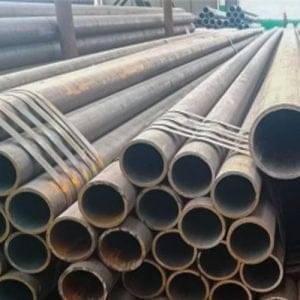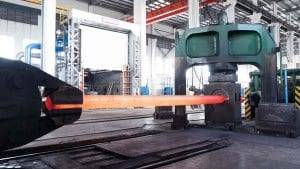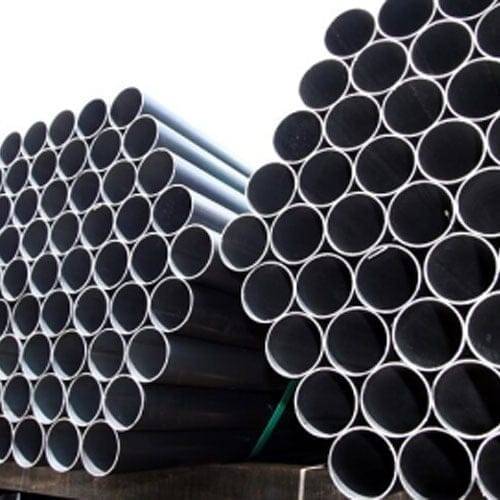Introduction

In the realm of modern construction, precision and efficiency are crucial for the success and longevity of any project. Precision steel pipes have emerged as an essential material due to their superior quality, strength, and versatility. These pipes play a vital role in various construction applications, from structural frameworks to intricate plumbing systems. This blog delves into the benefits of using precision steel pipes in modern construction, exploring their impact on performance, durability, and design flexibility.
What Are Precision Steel Pipes?
Precision steel pipes are manufactured to exacting standards, providing consistent dimensions and high tolerances. These pipes are produced using advanced techniques that ensure they meet rigorous specifications for strength, durability, and performance. They are commonly used in applications where high precision and reliability are required.
Key Characteristics of Precision Steel Pipes
| Characteristic | Description |
|---|---|
| Dimensional Accuracy | High tolerance in diameter and wall thickness. |
| Surface Finish | Smooth surface to reduce friction and wear. |
| Strength | High tensile and yield strength for various applications. |
| Material Quality | High-grade steel used to ensure durability and resistance. |
Benefits of Precision Steel Pipes
Enhanced Structural Integrity
Precision steel pipes are known for their exceptional structural integrity. Their uniform dimensions and high-strength material ensure that they can withstand significant loads and stresses, making them ideal for critical structural applications.
Structural Integrity Comparison:
| Pipe Type | Tensile Strength (MPa) | Yield Strength (MPa) | Applications |
|---|---|---|---|
| Precision Steel Pipe | 450-700 | 250-550 | Structural supports, frameworks |
| Standard Steel Pipe | 350-550 | 200-450 | General construction, non-critical applications |
Improved Durability
The durability of precision pipes is enhanced by their high-quality material and precise manufacturing processes. They are resistant to corrosion, abrasion, and environmental factors, extending their lifespan and reducing maintenance requirements.
Consistent Performance
Precision pipes offer consistent performance due to their precise manufacturing standards. This consistency ensures that they perform reliably under varying conditions, reducing the likelihood of unexpected failures and ensuring the safety and stability of construction projects.
Design Flexibility
Precision pipes can be manufactured to various specifications, allowing for flexibility in design and application. They can be customized to fit specific requirements, making them suitable for a wide range of construction needs, from intricate architectural designs to large-scale infrastructure projects.
Reduced Waste and Cost
Due to their precise dimensions, precision steel pipes reduce the amount of material waste generated during construction. This efficiency leads to cost savings in both material procurement and fabrication, making them a cost-effective choice in the long run.
Cost Comparison:
| Pipe Type | Material Waste (%) | Cost Efficiency | Typical Use Cases |
|---|---|---|---|
| Precision Steel Pipe | 1-2 | High | High-precision applications |
| Standard Steel Pipe | 5-7 | Moderate | General construction |
Applications of Precision Steel Pipes
Structural Frameworks
In modern construction, precision pipes are used extensively in structural frameworks, including skyscrapers, bridges, and industrial buildings. Their strength and accuracy are critical for ensuring the stability and safety of these structures.
Plumbing and Piping Systems
Precision steel pipes are ideal for plumbing and piping systems due to their smooth surface finish and accurate dimensions. They are used in water supply, drainage, and HVAC systems, where reliability and efficiency are paramount.
Architectural Elements
Precision pipes are employed in architectural elements such as facades, railings, and support structures. Their ability to be manufactured to precise specifications allows architects to achieve innovative and aesthetically pleasing designs.
Mechanical Components
In mechanical construction, precision steel pipes are used in components such as hydraulic systems, machinery supports, and equipment frames. Their high strength and durability are essential for the reliable operation of mechanical systems.
Key Considerations When Choosing Precision Steel Pipes
Material Specifications
When selecting precision pipes, it is important to consider the material specifications, including the grade of steel, tensile strength, and corrosion resistance. These factors will determine the suitability of the pipes for specific applications.
Manufacturing Standards
Ensure that the precision pipes meet relevant manufacturing standards and certifications. Compliance with industry standards ensures that the pipes will perform reliably and meet safety requirements.
Installation and Maintenance
Proper installation and maintenance are crucial for maximizing the performance and longevity of precision steel pipes. Follow best practices and guidelines to ensure that the pipes are installed correctly and maintained regularly.
Innovations in Precision Steel Pipe Technology
Advanced Manufacturing Techniques
Advances in manufacturing techniques, such as precision welding and automated cutting, are enhancing the quality and efficiency of precision pipes. These innovations improve the accuracy of pipe dimensions and reduce production costs.
Coatings and Treatments
New coatings and treatments are being developed to further enhance the durability and corrosion resistance of precision pipes. These advancements provide additional protection against harsh environmental conditions.
Smart Monitoring Systems
Integration of smart monitoring systems into precision steel pipes allows for real-time performance tracking and condition monitoring. These systems help detect potential issues early and optimize maintenance schedules.
Case Studies and Practical Examples

Skyscraper Construction
In the construction of high-rise buildings, precision steel pipes are used for structural supports and frameworks. Case studies of skyscrapers demonstrate how these pipes contribute to the safety, stability, and architectural design of tall structures.
Bridge Engineering
Precision steel pipes play a critical role in bridge engineering, providing strength and reliability for load-bearing components. Examples of bridge projects showcase the benefits of using precision pipes in maintaining structural integrity and performance.
Industrial Facilities
Industrial facilities often utilize precision pipes for machinery supports, piping systems, and structural elements. Practical examples highlight the efficiency and durability of these pipes in demanding industrial environments.
Conclusion
Precision steel pipes offer numerous benefits in modern construction, including enhanced structural integrity, improved durability, consistent performance, design flexibility, and reduced waste. Their applications span various fields, from structural frameworks to plumbing systems, demonstrating their versatility and importance. As advancements in technology continue to improve the manufacturing and performance of precision pipes, they will remain a critical component in achieving efficient and innovative construction solutions.
FAQ
Q:What are precision steel pipes used for in construction?
A:Precision steel pipes are used in structural frameworks, plumbing systems, architectural elements, and mechanical components due to their strength, accuracy, and durability.
Q:How do precision pipes compare to standard steel pipes?
A:Precision pipes offer higher dimensional accuracy, better surface finish, and improved performance compared to standard steel pipes. This leads to greater efficiency and reliability in construction applications.
Q:What factors should be considered when choosing precision steel pipes?
A:Consider material specifications, manufacturing standards, and installation and maintenance requirements when selecting precision steel pipes for a project.
Q:How do advancements in technology impact precision pipes?
A:Advancements in manufacturing techniques, coatings, and smart monitoring systems enhance the quality, durability, and performance of precision pipes, contributing to more efficient and reliable construction.
Q:Can you provide examples of projects that benefit from precision steel pipes?
A:Examples include skyscrapers, bridges, and industrial facilities, where precision steel pipes contribute to structural integrity, durability, and overall performance.




